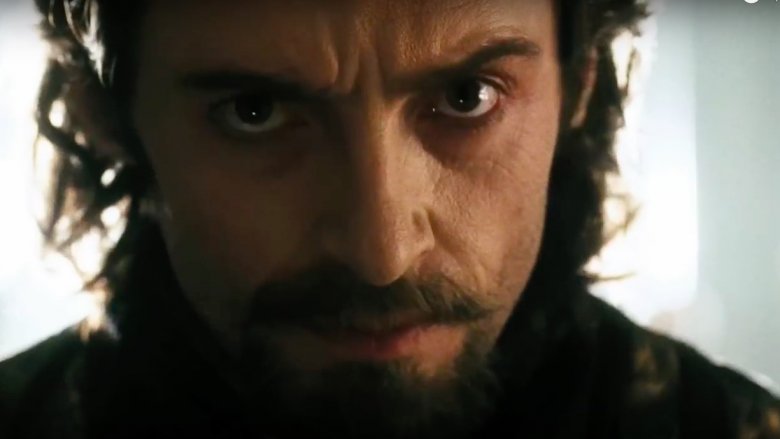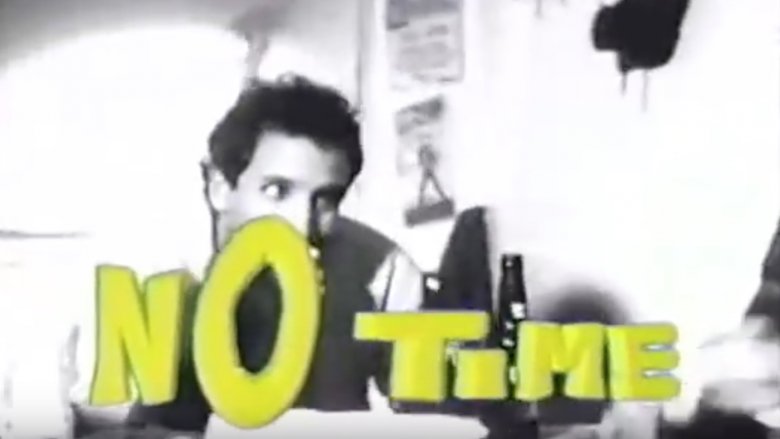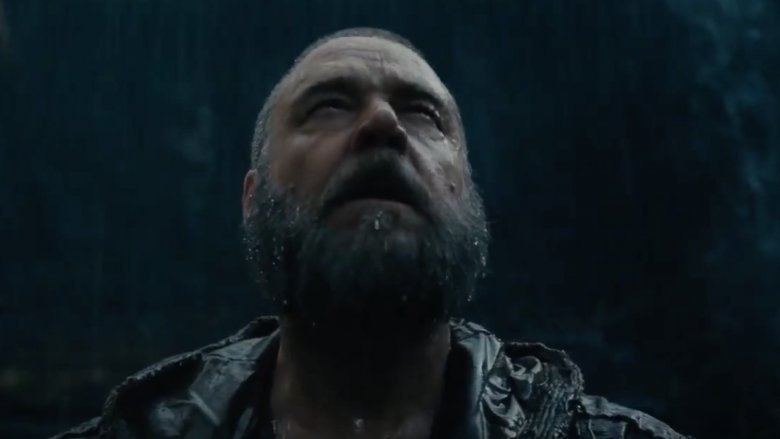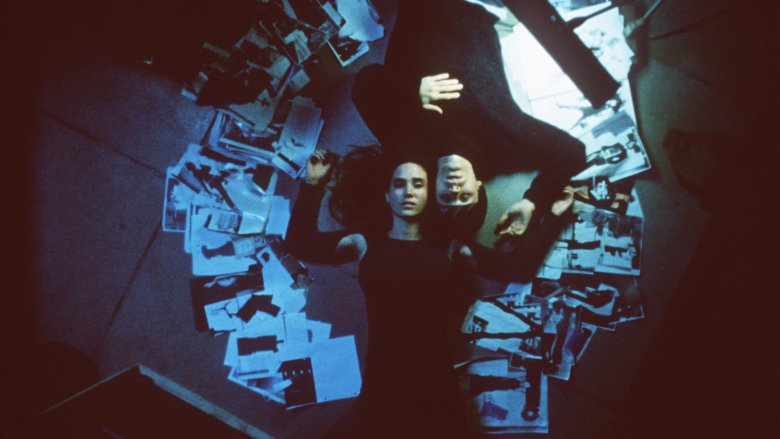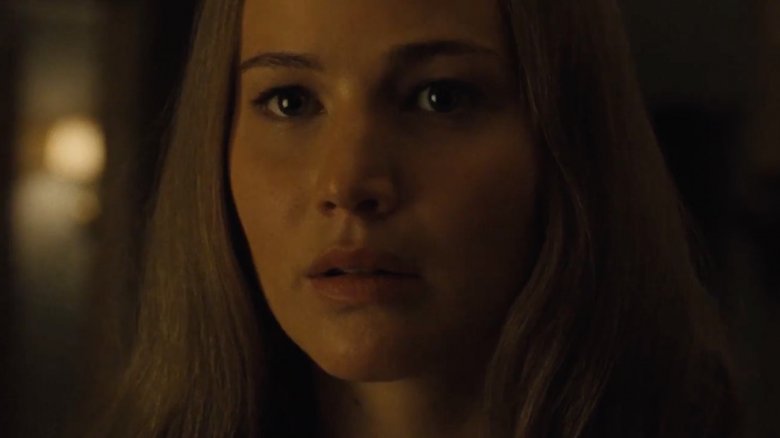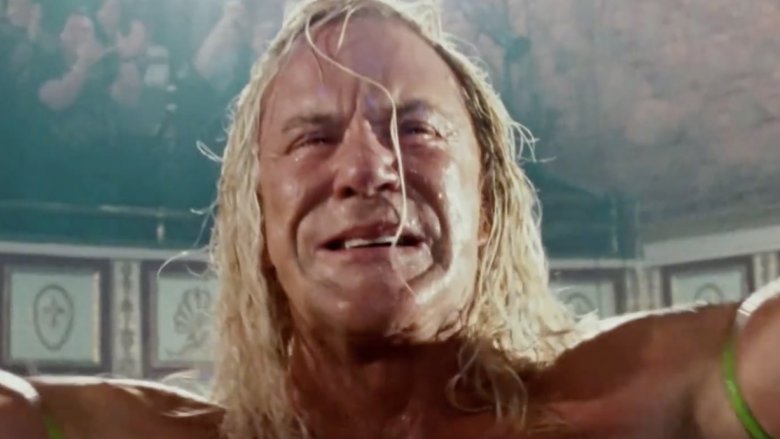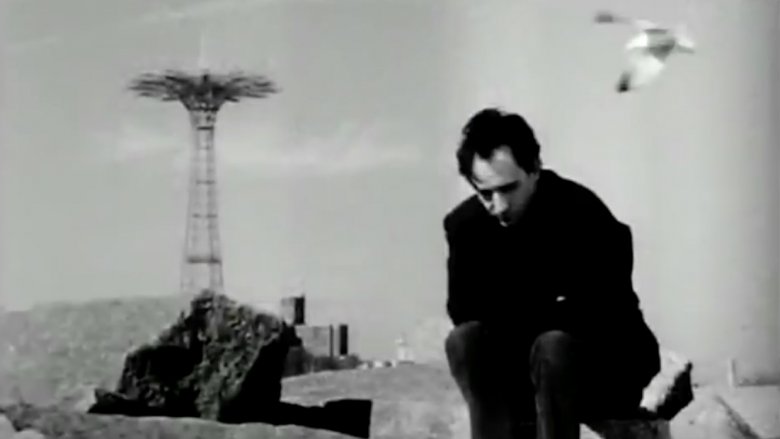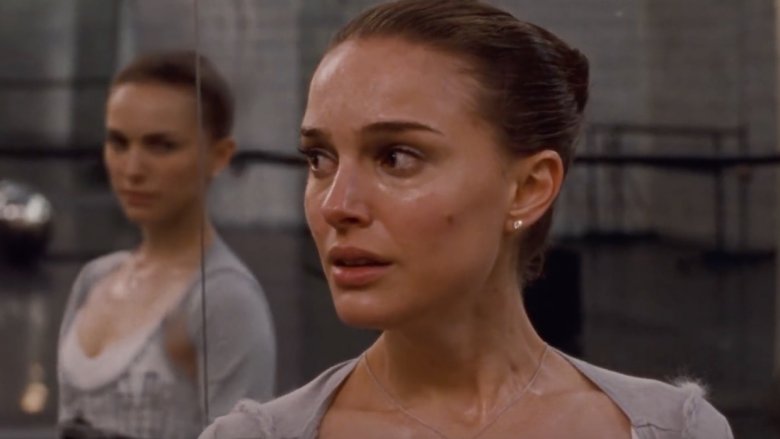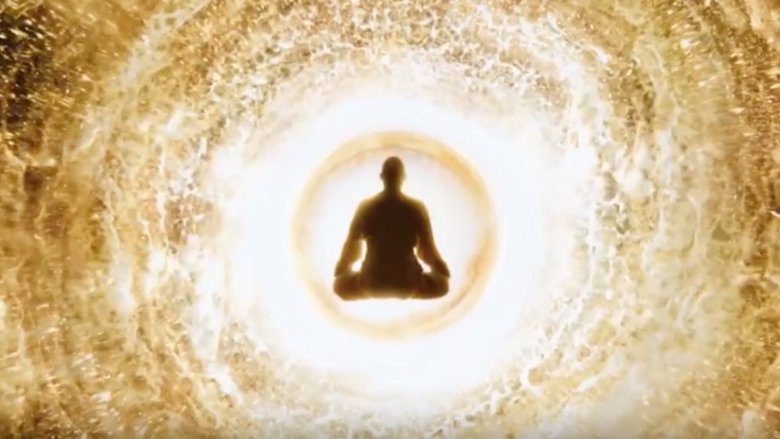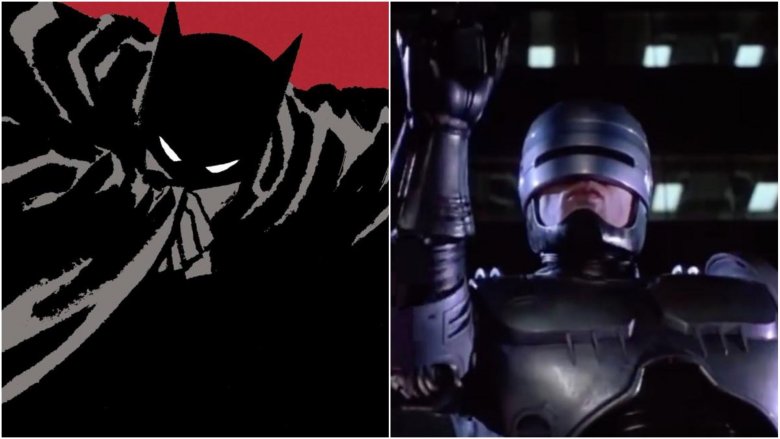Every Darren Aronofsky Movie Ranked Worst To Best
When Darren Aronofsky took his audacious debut Pi to the 1998 Sundance Film Fest, the indie film world instantly proclaimed the arrival of a bold new voice in cinema, with Aronofsky winning Best Director. In the almost 20 years since, Aronofsky has more than lived up to that lofty expectation. With seven feature films to his credit, the director has continued to push his films—and audience expectations—to the edges of moral and intellectual boundaries. More often than not, he's pushed both well beyond.
With the polarizing filmmaker returning to theaters with the genuinely shocking—and absolutely thrilling—Mother!, it seems like the perfect time to revisit his films and to give them a proper ranking in the process. So here it is, every Darren Aronofsky movie ranked worst to best.
No Time (1994)
Odds are you've never even heard of Aronofsky's 1994 short film No Time. Don't worry, not many have. Trust us when we say that may be a good thing. While Aronofsky has gone on to make some of the more thought-provoking films of the past two decades, the final film he directed as part of his AFI Master's program remains his biggest head-scratcher.
That's saying a lot for a filmmaker who's work has virtually been defined by WTF moments. While it's difficult to call the loosely connected vignettes in No Time an actual film, they remain interesting because they fall under the one genre that Aronofsky has never returned to—comedy. You'll understand why he never went back about five minutes into No Time.
Sure, there are a few laughs to be found in the film's 22-minute runtime, but No Time often plays like a cable access version of a really bad sketch comedy show. In spite of the film's shortcomings, savvy viewers will still see the signs of a young director—with longtime cinematographer Matthew Libatique in tow—working out a visual language all their own. While those extreme closeups, claustrophobic interior shots, and split screen techniques don't quite match the material in No Time, they still offer a compelling look at what lay ahead.
Noah (2014)
What lay ahead for Aronofsky has been an adventure to say the least. That was never more evident than in Aronofsky's choice to bring the Biblical tale of Noah's Ark to the big screen. Starring Russell Crowe, Noah hit theaters in early 2014, confounding audiences and critics alike. Some viewers enjoyed Aronofsky's humanizing take on Noah, a tortured soul consumed and frightened by apocalyptic visions, not to mention the seemingly impossible mission tasked to him by, ya know, God. Meanwhile, many viewers appreciated the the epic scale and set pieces in Noah's action-adventure underbelly.
Well, that last part may not be true. To be honest, the film's action scenes—complete with giant rock-monster angels and a Gladiator style showdown—feel like they belong in a completely different movie. If Noah never comes together as a whole, it's because Aronofsky shows little interest in those big budget—no doubt studio "encouraged"—action film elements. That much is obvious in how much extra time and energy he devotes to the story of Noah himself. And when Noah stays small, it's ripe with the introspection and emotion we expect from Aronofsky.
To his credit, the director uses that more intimate storyline to do what he does best, explore lofty questions of faith, creation, and man's purpose in the universe. Those are the questions that drew Aronofsky to the material in the first place. That they're often overwhelmed by studio bombast is why Noah remains one of his least effective films.
Requiem For A Dream (2000)
Aronofsky's second feature, Requiem For A Dream actually suffers from a different fate. After grabbing our attention with his debut film, Aronofsky seemed to take pleasure in testing it with his followup. Requiem For A Dream is a film so in your face and so deeply unsettling that most viewers are too skittish to watch it a second time. But they should, because Aronofsky's adaptation of Hubert Selby Jr.'s pitch-black novel is bolder, more stylistic, and more heartbreaking than just about any film he's ever made.
Following a year in the lives of three low-level junkies and one broken hearted mother (Ellen Burstyn in a devastating, Oscar-nominated performance), Requiem is without question one of the bleakest, most honest depictions of drug addiction ever committed to film. And yes, it's often very difficult to watch. It's also fascinating to look at.
Throughout the film, Aronofsky uses repeated montages, extreme close-ups and swirling camera angles to draw you in to the darkness. Like a drug, the early moments of Requiem For A Dream invite you to step inside with promises of splendor to come. But promises mean little in the drug world. Eventually those same effects that drew you in—bolstered by a harrowing original score from Clint Mansell—herald the beginning of a frenetic spiral into darkness and despair that some viewers simply cannot stomach. And one that too many may already know. Ugh, did we mention this is a very difficult film to watch?
Mother! (2017)
Did somebody say difficult to watch? Say hello to Darren Aronofsky's Mother!, released in September 2017. After becoming a spoke in the studio wheel with the big-budget bombast of Noah, Aronofsky set out to break it with his followup. And Mother! doesn't just break the wheel, it takes a flamethrower to the smashed up pieces and picks its teeth with the charred remains.
To be clear, it's pretty much impossible to talk about Mother! without spoiling something. Since we wouldn't dare to ruin a second of the madness for any of you, we'll just say that the story follows a couple whose life begins to unravel when unexpected guests turn up at their door. Just know that you cannot possibly understand the depths of that unraveling. And know that this film is literally everything that Aronofsky does best—thematically, stylistically, and psychologically—turned up to 11.
Is it a religious parable? Yes. Is it an environmental treatise? Yes. Is it an allegory about the destructive act of creation? Yes. Is it making people walk out of the theater in disgust? You better believe it is. So the only question left to ask is, will Mother! one day find its way further up this list? We think so—lousy CinemaScore rating or not. But it's still a little too early to tell.
The Wrestler (2008)
By comparison—to Mother! or any other Aronofsky film—the director's 2008 drama The Wrestler is a decidedly restrained affair. In fact, it sort of feels like the black sheep in Aronofsky's oeuvre. That may be because it was the first of the director's films that he didn't also write. And Robert D. Siegel's heartfelt script about an aging wrestler struggling to rectify mistakes from his past is the very definition of "character study." That character-first approach led Aronofsky to make his least stylized film yet.
But then, The Wrestler is also the one story in Aronofsky's pantheon that requires a less stylistic approach. Much of the film takes place in grungy grocery stores, sleazy strip clubs, and sweaty gymnasiums. The settings alone demand a naturalistic approach. When you add in showstopping performances from Mickey Rourke—who plays the titular wrestler with fragile, ferocious energy—and Marisa Tomei—who brings staggering depth to a character that might've devolved into "stripper with a heart of gold" cliches—well, one would be tempted to just point the camera at their faces and watch them.
Aronofsky is wise enough to follow that instinct, letting his camera linger in extended close-ups that let his actors do the emotional heavy-lifting. The approach magnifies every longing glance and passing silence to almost agonizing degrees. Somewhere in all that agony, Aronofsky unraveled a soulful tale of not-quite redemption. And he delivered his most intimate film to date.
Pi (1998)
Though Aronofsky's kinetic debut may lack the intimacy that's permeated much of his later work, the story behind Pi is the very definition of intimate. As it goes, Aronofsky and his entire production crew came up with "the scheme to end all schemes" to raise money for the film—ultimately begging every single person they knew to put up $100 of their own money with the promise of $150 in return. They managed to raise $60,000 to get Pi off the ground—and managed to make one stunning film in the process.
As far as debut films go, you won't find many as daring or as dazzling as Pi. Filmed on stark black and white stock and following the trail of a paranoid genius out to discover the secrets contained in the titular number, Pi is equal parts psychological thriller and metaphysical melodrama. What Aronofsky and Co. find in that mix is a true "thinking man's" sci-fi film. One that barrels forward with the propulsive energy of a roller-coaster, but one that never once loses sight of the character that's strapped in.
That Pi so gracefully allows viewers to understand the troubled mind of Max Cohen (played with unerring intelligence by Sean Gullette) is its greatest feat. That it makes you care so deeply about where that mind takes him is why Pi remains one of Aronofsky's best.
Black Swan (2010)
Which brings us to number two on our list, Aronofsky's 2010 ballet drama Black Swan. Yeah, yeah, yeah, we remember all that silly Black Swan backlash too. We don't care. The fact of the matter is, Black Swan is jaw-dropping work of cinematic brevity. One that sees Aronofsky at his most focused, and one that sees him finally find the right mix between his artistic ambition and his penchant for shock cinema.
That mix led Aronofsky to his first and only Oscar nomination for Best Director. And whether you enjoyed the film's third act dissent into soap opera shock or not, you still have to admit that Aronofsky directed the hell out of every bonkers moment.
He pits Matthew Libatique's camera as ballerina, he lets Clint Mansell's music dance between the operatic and the macabre, and he draws what's become the defining performance of her career out of the great Natalie Portman. Oh, and he gave new life to Winona Ryder's flagging career in the process. Not bad for a single film, right? Especially one that's almost consumed by claustrophobic psychosis and raw sexual energy. Seriously, Black Swan is an extraordinary film that would likely rank as the best on many filmmakers' resumes.
The Fountain (2006)
But Black Swan isn't the best it gets for Darren Aronofsky. That spot belongs to his 2006 sci-fi stunner, The Fountain, starring Hugh Jackman, Rachel Weisz, and Ellen Burstyn. Hear us out, 'cause we know you've probably got very specific feelings about this film. Yes, it's overflowing with narrative contortions. Yes, it often errs on the side of melodrama. And yes, its intellectual reach tends to exceed its grasp. So what? The film earns its place at the top based purely on the overwhelming passions that propel it.
The Fountain is the very definition of a passion play for Aronofsky. He once had the film greenlit as a $70 million epic, only to see that project fall apart just days before principle photography began. Like the film's protagonist, Aronofsky refused to let the passion die. He rewrote the script to operate at half the budget and moved forward with a leaner version of The Fountain. But lean didn't mean less ambitious.
The Fountain's narrative still sweeps across time and space in search of answers about love, mortality, science, and faith. That narrative is as heartbreaking in its humanity as it is exhilarating in its execution. Even when The Fountain's reach does exceed its grasp, one has to marvel at Aronofsky's ability to reach further. That passion and ambition is what makes The Fountain resonate. It's why, out of all Aronofsky's films, it's the one that continues to inspire genuine awe. And why it's the one that seems destined to live forever.
What we'd still like to see
Now that we've ranked all of Aronofsky's work, let's take a look at a couple of films we're still hoping might make an appearance on this list in the future.
Batman: Year One
Look, an Aronofsky-directed Batman flick came very close to happening way back in 1999. According to a 2007 interview with The Guardian, Aronofsky pitched Batman: Year One as a hard-nosed detective film that lived somewhere between The French Connection and Taxi Driver. He recently admitted that he also wanted Joaquin Phoenix in the lead. While Warner Bros. passed on the project—and eventually turned the Batmobile keys over to Christopher Nolan—we're still sort of hoping Aronofsky gets a crack at Batman in the future. Maybe after the Batffleck era has finally run its course?
Robocop
While less is known about Aronofsky's shelved Robocop project, we can't help but think he would've made one hell of a nasty addition to this ultra-violent franchise. It certainly couldn't have been worse than the Jose Padilha directed snoozer that hit theaters back in 2014. At this point, it seems unlikely that Aronofsky will ever revisit his Robocop concept, but we can't help but notice that MGM/Columbia have not gone ahead with a new Robocop sequel either. So we can still hope, right?
